This is an easy foraging recipe for the nourishing and vitamin C-packed pine needle tea.
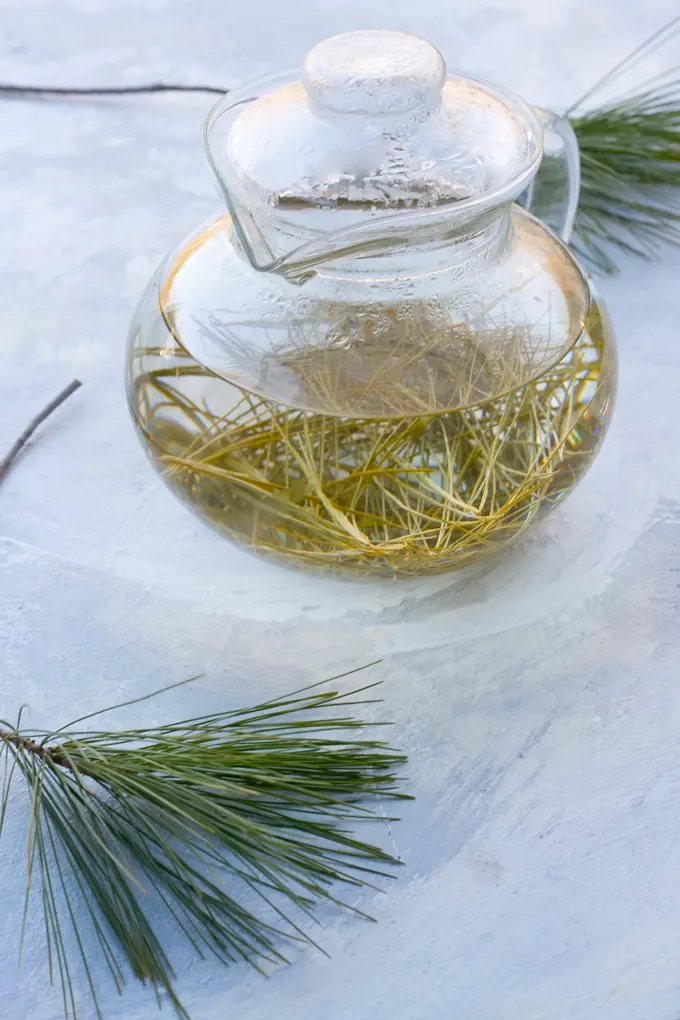
I've been pining for pine.
Get it?
Awhile back, I was reading a foraging cookbook (as one does), and saw a recipe for pine needle simple syrup.
I apologize to the cookbook author-- I can't remember which book it was in.
I immediately started hunting for pine trees, but at the time, I lived in West Virginia. West Virginia is pine tree deficient.
I couldn't find a single pine tree.
And then, we moved to Kentucky.
Kentucky has tons and tons of pine trees.
There are pine trees everywhere!
And so-- my pine tree experiments began.
Looking for more foraging ideas? Try making crabapple butter, honeysuckle simple syrup, and honeysuckle vodka.
Why Drink Pine Needle Tea?
Instead of pine needle syrup, I've been making pine needle tea. Mostly because I've had a cold, and pine needle tea is a delicious way to get some vitamin C.
It also feels amazing on a sore throat.
Learn more about the nutritional value of pine needles here.
Identify the Pine Tree Before Harvesting
The number one rule of foraging is to positively identify the plant. Don't skip this step-- not all types of pine are edible.
We'll talk about one type of pine that you can definitely forage for pine needle tea, and a few more types of pine (and pine look-a-likes that you should avoid.
Use a field guide to help you positively identify the type of tree you're looking at. I recommend the Audubon Society Field Guide to North American Trees.
If you're planning on using a type of pine tree for pine needle tea that we don't discuss, make sure to do some research about the specific type of pine that you want to forage.
Edible Eastern White Pine
For my pine needle tea, I used needles from the Eastern White Pine tree.
The Eastern White Pine has edible needles, and is easy to identify.
Look at how the needles are formed on the tree-- Eastern White Pine trees grow needles in groups of 5.
Keep in mind that needles also fall off the tree, so it's a good idea to check several needle clusters for the grouping pattern.
Learn more about the Eastern White Pine, or watch this pine tree identification video.
Inedible Pine Trees to Avoid
Some types of pine have poisonous needles.
Avoid harvesting from the Ponderosa Pine, especially if you're pregnant or might be pregnant.
Learn more about the Ponderosa Pine here.
Avoid harvesting from any type of Yew tree. Yew trees are not actually pine, but they're often confused with pine.
Learn more about the Yew Tree here and here.
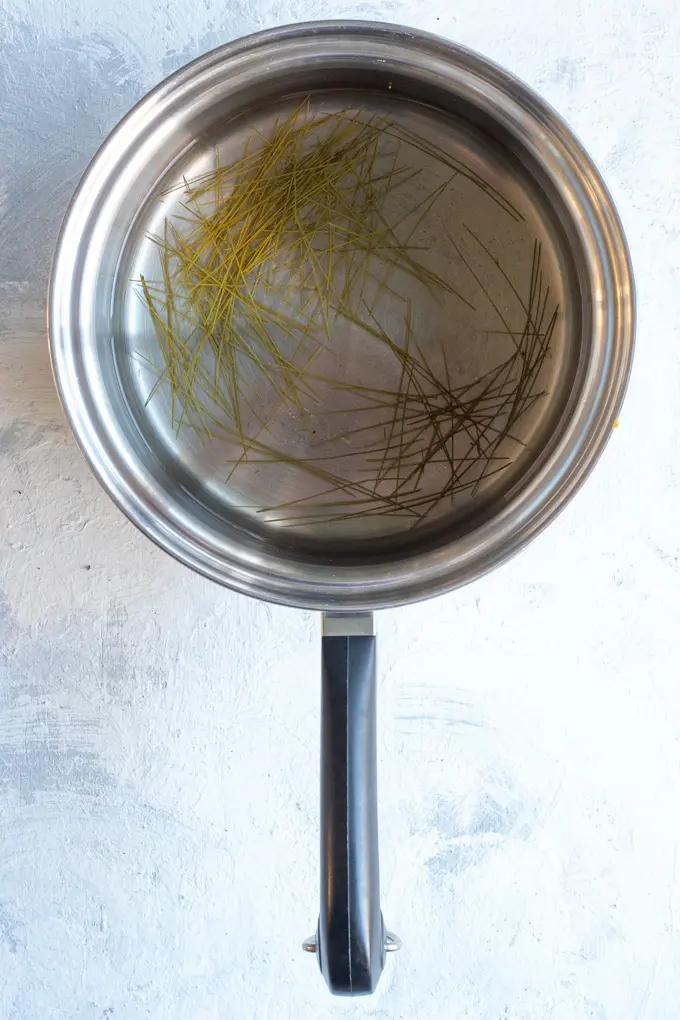
How to Forage Pine Needles
After you've positively identified the type of pine tree, and are sure it's edible-- it's time to forage.
You'll be cutting off green pine needles, not the brown ones that have fallen to the ground.
If some of the needles are a lighter green than others-- use those. They're the freshest growth.
Next, remove the green needles from the woody branch. Trim off any brown, dried off needles.
If you want, cut the needles into smaller pieces.
How to Make Pine Needle Tea
Making pine needle tea is similar to making other herbal teas (like mint tea, ginger tea, or catnip tea).
Simply bring water to a boil, and then let the water cool for one minute.
I like to avoid pouring boiling water directly on the needles to preserve all the nutrients and vitamins.
Pour the water over the tea, and then steep covered for about 15 minutes.
You can steep the needles in a covered saucepan, teapot, or make a small batch in a teacup.
Next, strain out the needles. I do this by pouring the tea through a mesh sieve.
Tip: You could also use a tea ball or tea bag, but since the needles can be a little long and unwieldy, I usually just leave them loose.
Want more tea ideas? Check out this guide to herbal teas.
What does Pine Needle Tea Taste Like?
Pine needle tea is an enjoyable if slightly bitter tea.
It reminds me of holy basil tea or nettle tea.
It's also a very mild tea-- to add more flavor, try adding extra herbs (like mint or thyme).
For a stronger tea, you can add also more pine needles than the recipe calls for, and steep it longer.
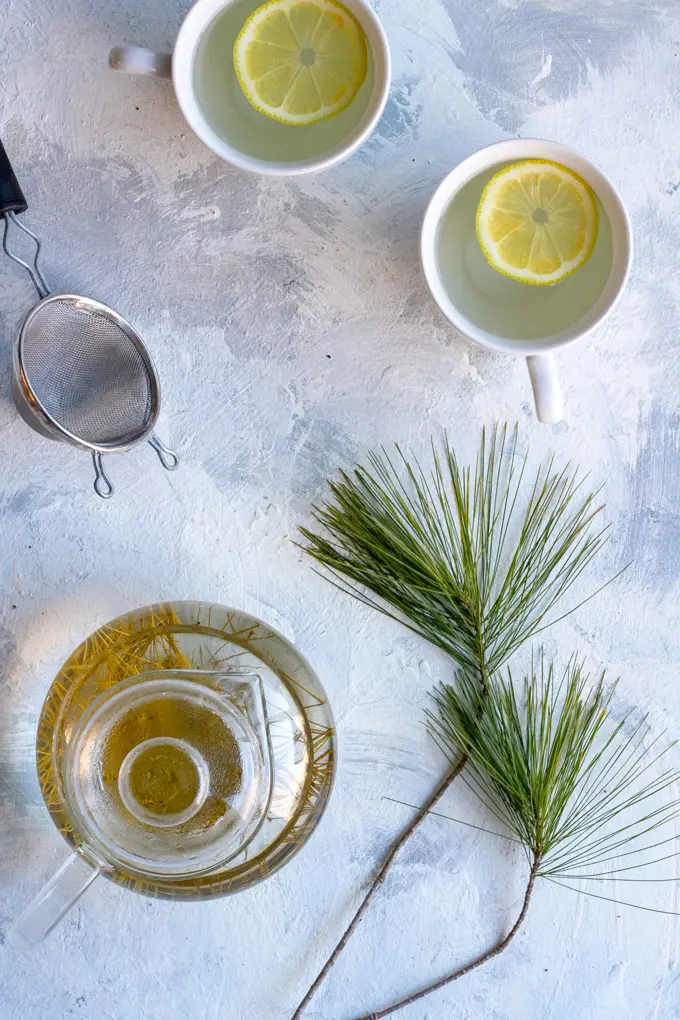
Pine Needle Tea
Ingredients
- ½ cup (~3 needle clusters) Eastern White Pine needles See Recipe Notes
- 3 cups water
- 2 slices lemon, optional
- 1 teaspoon sugar or honey, optional (use more or less to taste)
Herbal Tea Variations (Choose 1, or use smaller amounts of each):
- 2-3 springs fresh thyme
- 2-3 springs fresh mint
Instructions
- Remove pine needles from the woody stems. Trim off any brown needles. Rinse needles with cold water. Set needles aside to dry.
- Bring tea water to a boil. Pour into a teapot, saucepan, or a French Press.
- Add needles to the water. Add any additional ingredients (except lemon). Cover pot. Steep about 15 minutes.
- Strain out the needles by pouring tea into glasses through a mesh sieve.
- Serve hot, with lemon if desired. For iced tea: make a larger batch of tea, let the tea cool slightly, and then store in a pitcher or glass jar in the fridge. Use within 2-3 days.
Notes
- Ponderosa Pine: May be harmful, especially to pregnant women
- Yew Trees (Pine Look-a-likes): Poisonous
- Any type of pine tree that you have not positively identified

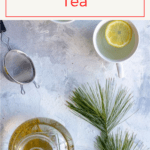
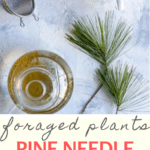
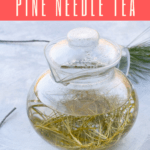
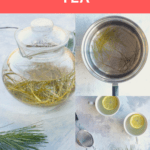
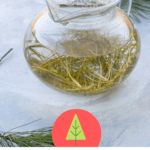
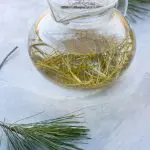
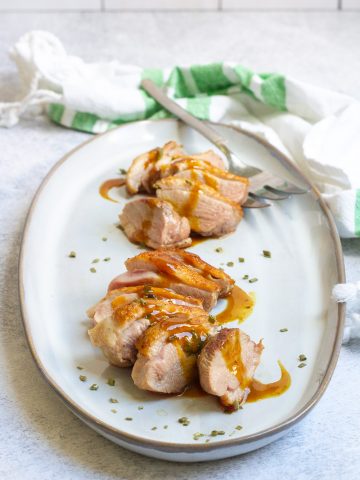

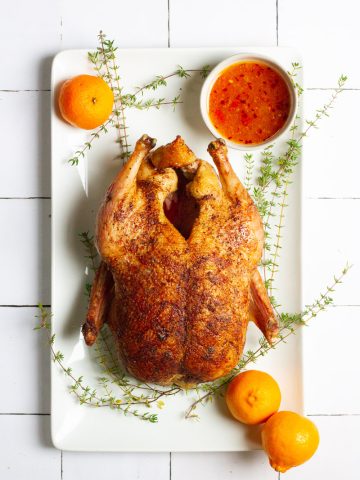
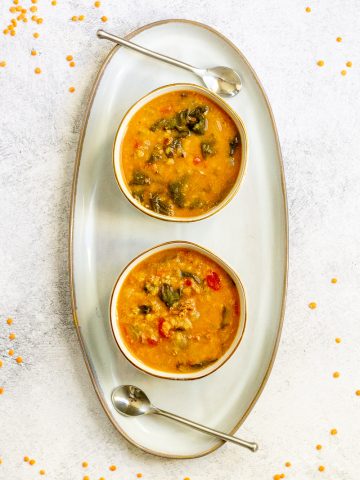
Jenni LeBaron
I had no idea that you could make pine needles into a tea, but this sounds really cool. I love the scent of pine, so I'm excited at the prospect of how lovely this will smell when making it. I bet this also feels lovely on your throat when you have a cold!
Lucy Johnson
It is also agreat!! detoxer.you can also buy the drops
Debra
This is so interesting. I live in the Northeast where it is still cold enough to drink lots of tea all day long. I'm always looking for new varieties and I totally have pine trees. Thanks for the info...going to check the needle situation out tomorrow.
Katrina Boet
i actually found this recipe on YouTube a while ago but i was looking at other peoples recipes and this one is by far my favorite
Sarah Trenalone
I'm so happy to hear that!! Thank you for letting me know! 😀
Debra Lynn
I live in Southern WV and there always have been plenty of white pine around here. I used to plant them as a kid for something fun to do out here in the country. I have several in my yard now. They grow really fast. So thanks for the tea idea. I have never tried this!
Alisha Trenalone
That's great! Hope you have fun trying out the recipe!
-Alisha at Champagne Tastes
Keith Payne
Just what I was looking for...haven't had it in years...thx!
Alisha Trenalone
Hope you enjoy!
-Alisha at Champagne Tastes